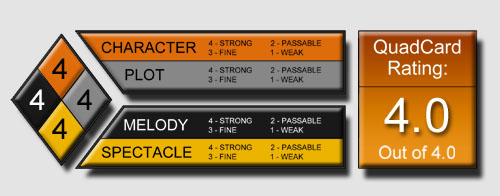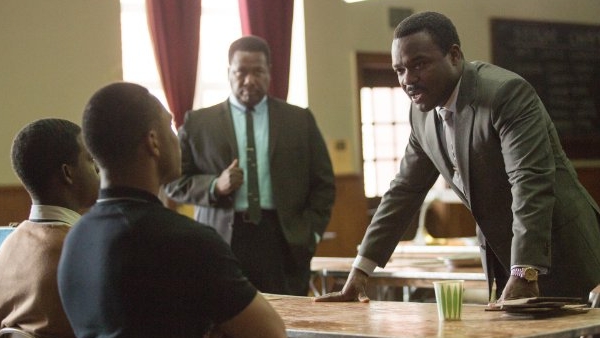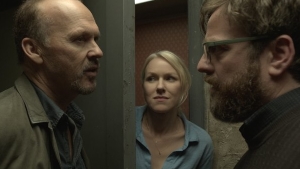 Sometimes, the line between fiction and reality can be blurry; other times however, it is altogether indistinguishable. Alejandro González Iñárritu‘s Birdman is about a former A-list actor now seeking a final shot at fame and, more importantly, relevance through a play he’s adapted, directed and starring in. Only it hasn’t opened yet. Riggan Thomson (Michael Keaton) has three preview nights to work the kinks out and get a handle on all the things misfiring in his life – from his broken family to his prima donna actors. It’s a story about being behind the scenes of a play, but, more importantly, it’s very self-referential. An exaggerated reflection of all the issues, it’s meant to play out like real life, but it’s presented like a perpetual dream. Terry Gilliam and Darren Aronofsky, eat your heart out.
Sometimes, the line between fiction and reality can be blurry; other times however, it is altogether indistinguishable. Alejandro González Iñárritu‘s Birdman is about a former A-list actor now seeking a final shot at fame and, more importantly, relevance through a play he’s adapted, directed and starring in. Only it hasn’t opened yet. Riggan Thomson (Michael Keaton) has three preview nights to work the kinks out and get a handle on all the things misfiring in his life – from his broken family to his prima donna actors. It’s a story about being behind the scenes of a play, but, more importantly, it’s very self-referential. An exaggerated reflection of all the issues, it’s meant to play out like real life, but it’s presented like a perpetual dream. Terry Gilliam and Darren Aronofsky, eat your heart out.
Riggan has super hero envy which is funny because he shuns the success that the Birdman character brought him years earlier (we’re not even going to get into the obvious inside joke about Keaton playing Batman and those intended parallels). Whether comically or not, Birdman pokes fun at nearly 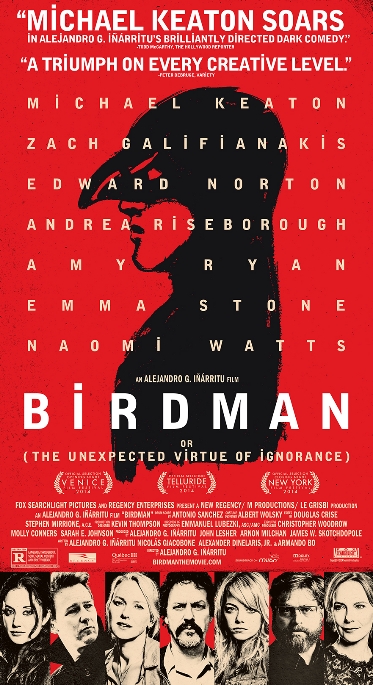 everything about the entertainment industry and never once shows reverence for it. Really, it’s a film that laments how far some entertainers have fallen in pursuit of either gaining or maintaining a fan base. Everything in the film has, at the very least, two meanings and infinite depth of character. From the misleading idea that Keaton’s Riggan Thomson may or may not have telekinetic superpowers, to his current self struggling to get past those former (if hollow) glories, Birdman gives and gives and gives.
everything about the entertainment industry and never once shows reverence for it. Really, it’s a film that laments how far some entertainers have fallen in pursuit of either gaining or maintaining a fan base. Everything in the film has, at the very least, two meanings and infinite depth of character. From the misleading idea that Keaton’s Riggan Thomson may or may not have telekinetic superpowers, to his current self struggling to get past those former (if hollow) glories, Birdman gives and gives and gives.
Darkly comical, this is as ambitious as it is black and white. Further, the film is complex and focuses on personal struggles as well as the contention between entertainment and criticism of it. There are few films that share the sophistication, ingenuity, and ambition of Birdman because Iñárritu examines a multitude of issues on multiple levels – everything from fame, personal happiness, acceptance, relevance, it’s all put on stage, and that’s just scratching the surface.
What really sets the film off is the idea that a fictitious critic can Riggan’s career because she doesn’t like him. To be fair, she doesn’t like what he represents, and while the whole film is a farce and a dark satire to boot, every breath of dialog in the film feels like absolute truth from actors happy to let down their guard in order to voice personal frustrations.
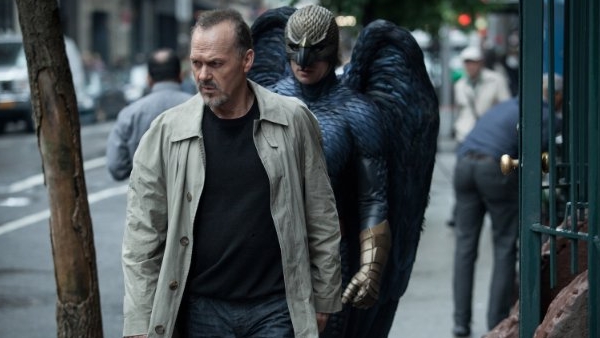
On that note, the turning point in Birdman finds Riggan being taken down a peg the night before his show opens. That biting critic, Tabitha Dickinson (Lindsay Duncan), tells him, essentially, that he’s not an actor, he’s just a celebrity which is primarily why she hates him. Even at a fictional level, this hard-edged, feared and influential critic literally has the power to shut down a film production simply because she doesn’t believe in it. That says incredible things about what critics do. But Riggan fires back that critics don’t have any steaks in the game – it doesn’t cost anything to write a review and, further, they’re not the ones putting anything on the line.
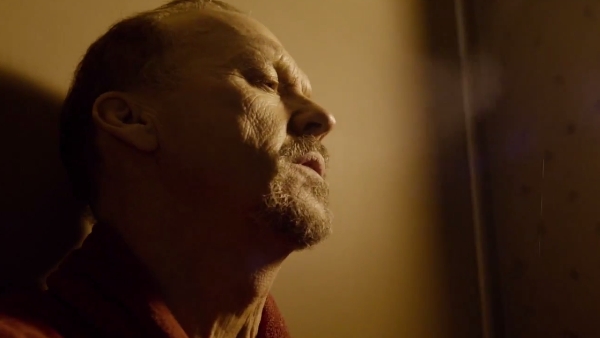
Technically speaking, Birdman it’s an understated triumph. It never cries “look at me, look at the tricks I can do” but it’s hard not to notice. It’s astounding and mysterious how they pull off a string of complex shots to make the whole film look as if it were one continuous 119 minute take. From continually hiding the camera (even when starring head on at a mirror), to making impossible transitions, this is hybrid digital and practical craftsmanship at its finest. For instance, wrap your head around this: in real time we move from the roof top of one building, across the street – while travelling backwards mind you – through the bars of the fire escape, through a barely open window, and finally pan the camera around the room like it was there the whole time!
G-S-T RULING:
Like the Inception of comic book inspired/related films, Birdman or (The Unexpected Virtue of Ignorance) is a genre-defying experience and a triumph on every conceivable level. It’s technically stunning, contextually arresting, and one of the best films of this or any decade. In the film, Riggan reveals that he has held on to a seemingly insignificant, but none-the-less meaningful, note which a young fan gave him years earlier – it thanks him for an honest performance. Well Mr. Keaton, we wish we could similarly give you such a heartfelt note on a cocktail napkin. But really, at the very least, you deserve an Oscar nod…and one for everyone involved in this cinematic masterpiece.
